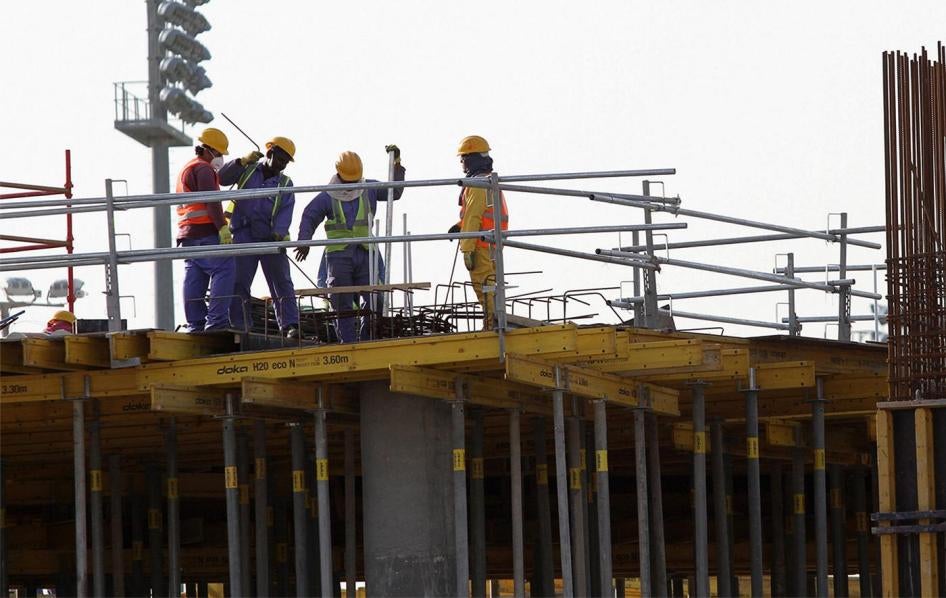(Beirut) – Changes to the labor law that took effect in 2016 will not protect migrant workers from the serious abuses that characterize Qatar’s construction industry and other low-paid sectors of its economy, Human Rights Watch said today in its World Report 2017.
Changes to Qatar’s kafala (sponsorship) system left its fundamentally exploitative characteristics in place. Migrant workers will not be able to switch employers, even if the workers experience abuse, and will still need their employer’s permission to leave the country.
“Qatar’s refusal to countenance meaningful reform of its labor system will mean more abuse, more exploitation, and more suffering for migrant workers,” said Joe Stork, deputy Middle East director at Human Rights Watch. “Qatar claims to have abolished its kafala system, but all it did was change the name.”
In the 687-page World Report, its 27th edition, Human Rights Watch reviews human rights practices in more than 90 countries. In his introductory essay, Executive Director Kenneth Roth writes that a new generation of authoritarian populists seeks to overturn the concept of human rights protections, treating rights as an impediment to the majority will. For those who feel left behind by the global economy and increasingly fear violent crime, civil society groups, the media, and the public have key roles to play in reaffirming the values on which rights-respecting democracy has been built.
Law No. 21 of 2015, on the regulation of the entry and exit of expatriates and their residency, entered into force in December 2016. It refers to “recruiters” instead of “sponsors” but it is, in essence, the same system. The new law still requires foreign workers to obtain a “No Objection Certificate” from their current employer to transfer legally to another employer before the end of their contract. It also requires permission from an unspecified “competent authority” along with the Interior and Labor and Social Affairs Ministries.
If the contract does not specify any time frame, under the new law workers must wait five years before leaving an employer. The workers also must still obtain exit permits from their employers to leave Qatar. The new law provides for a grievance committee for workers in cases in which sponsors refuse to grant exit visas, but the arbitrary restriction on the workers’ right to leave the country remains in place. This enables employers to arbitrarily prevent their employees from returning to their home country.
The new labor law explicitly excludes domestic workers, leaving them still more vulnerable to abuse and exploitation. In addition to labor abuses, many domestic workers faced physical and sexual abuse. A law on domestic workers remains in draft form and has not been made public.
Qatari authorities should ensure that migrant workers have the right to change employers before the end of their contracts and abolish the exit visa system, Human Rights Watch said.








